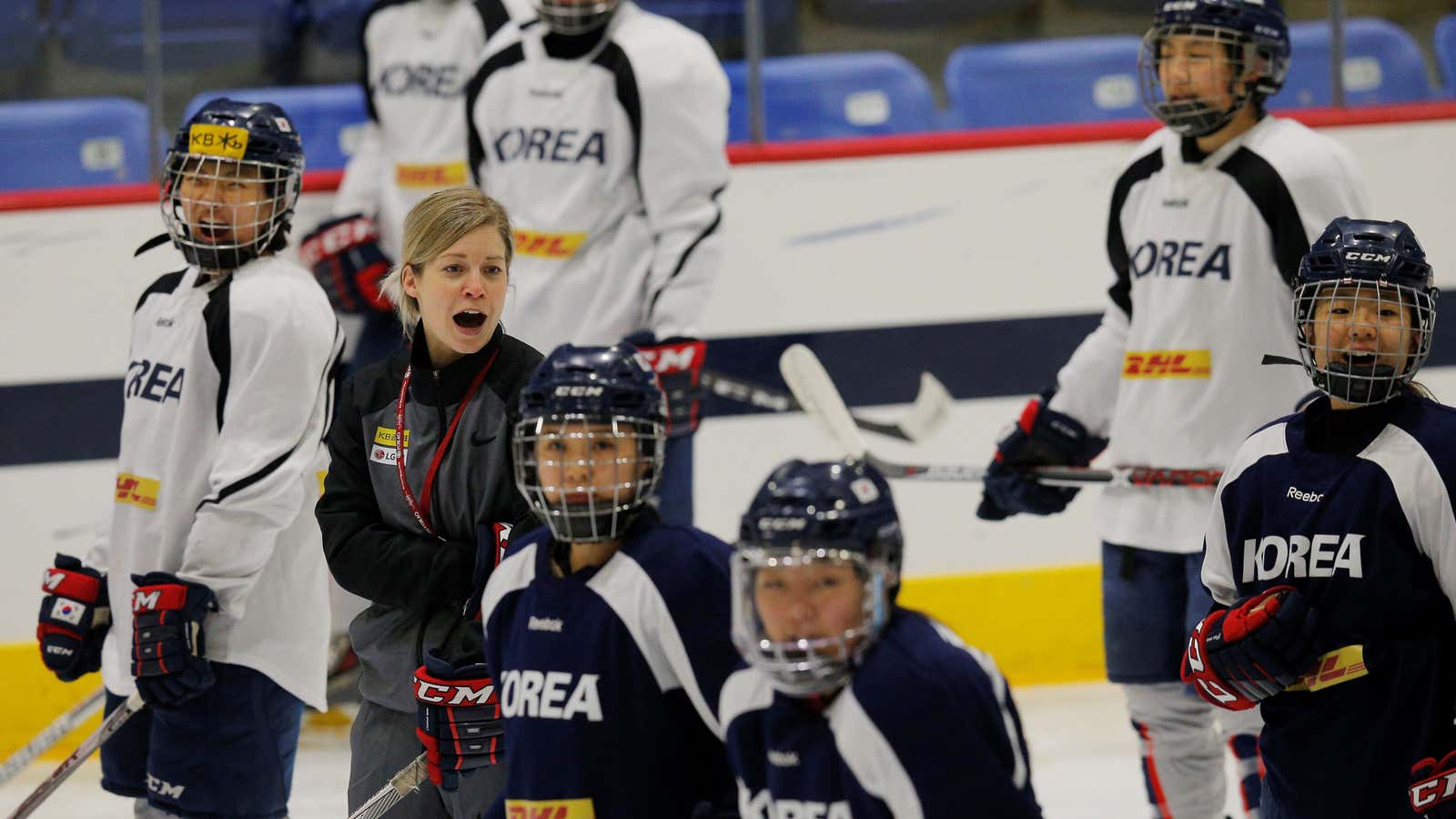As North and South Korea enjoy a diplomatic detente ahead of next month’s Winter Olympics, Kim Jong-un has called for “independent unification” free from the interference of other countries, in particular the US.
Yet it is an American who is in charge of arguably the most symbolic effort of North-South Korean cooperation. As part of the detente, the two sides agreed to field a unified female hockey team in the Winter Olympics, to be hosted by South Korea next month in Pyeongchang. Last week, 12 North Korean hockey players arrived in South Korea for joint practice sessions.
Those players will be coached by a woman who made her mark in the sport in Minnesota.
In 2014, Sarah Murray, a 29-year-old dual citizen of the US and Canada, was offered an unusual opportunity to coach the national team of South Korea, with an eye toward the Winter Olympics. Murray was a star player at the University of Minnesota-Duluth who led her team to two national titles. Her father, Andy Murray, is a former coach and player of the National Hockey League who now coaches at Western Michigan University.
It was through her father that Murray met Jim Paek, the first Korean-born hockey player of the NHL and the coach of South Korea’s national team on the men’s side. He is also, it so happens, the director of hockey for the Korea Ice Hockey Association, the nation’s governing body for the sport. Searching for a women’s coach, Paek was intrigued by Murray’s hockey credentials. Not long after their introduction, Murray was on a flight to South Korea to meet her players in late 2014.
In her younger years, Murray played for a Minnesota prep school, Shattuck-St. Mary’s, that ESPN dubbed the “Hogwarts of hockey.” She’s also played in the Swiss pro ranks, and learned about coaching by watching her father, whom she still calls for advice on training the Korean squad.
But what happened this month isn’t quite what Murray signed up for. On Jan. 14, Murray found out abruptly that North Korean players would be incorporated into her team—less than a month before next week’s Opening Ceremony. ”I am kind of shocked this happened so close to the Olympics,” she told reporters. ”When rumors were going around about this happening, I didn’t really believe it.” Many in the hockey team and general South Korean public are also unhappy with the decision.
In addition to managing the morale of South Korean players who will get less Olympics action because of the unexpected newcomers, Murray must also put in effort to learn about the new players—many of whom no doubt grew up being taught that Americans are evil. Murray also told the New York Times last year that communication was the biggest obstacle (paywall), as she coaches through a translator. It’s a problem that’s about to get even tougher now that North Korean players have been added into the mix, as they use different game terminology than players in the South, a result of the two sides having been separated for decades and evolving in separate ways.
In many ways, Murray has been saddled with an unfair burden. Some see sexist attitudes behind South Korea’s decision to choose the women’s hockey team for unification, but not the men’s. Authorities explained that the women’s team was low-ranked and thus didn’t stand much chance to win medals anyway—even though the men’s team is ranked nearly as low.
In the Times interview last year, Murray said that she relishes being the underdog and is hoping to “shock people” with the Korean team’s performance. In some ways, she’s already managed to surprise people, with the Korean women’s team rising six spots in world rankings under her guidance. However far Murray takes them this time, she will have to overcome more obstacles than most coaches could ever expect to face.
